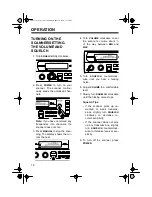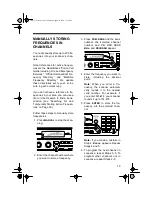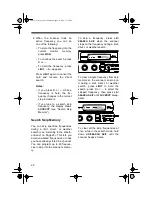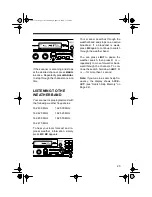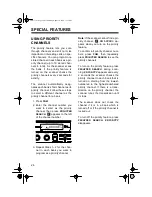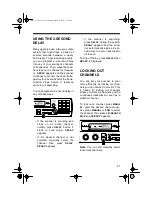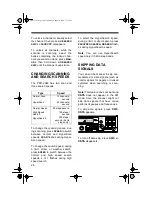
13
UNDERSTANDING YOUR SCANNER
Once you understand a few simple terms we use in this manual and familiarize
yourself with your scanner’s features, you can put the scanner to work for you.
You simply find the communications you want to receive, then set the scanner
to scan those frequencies.
A frequency is the tuning location of a station (expressed in kHz or MHz). To
find active frequencies, you can use the limit search function which lets you
search within a specific range of frequencies or the direct search function
which lets you search up or down from the currently displayed frequency.
When you find a frequency, you can store it into a permanent memory location
called a channel, which is grouped with your other channels in a channel-
storage bank. You can then scan the channel-storage banks to see if there is
activity on the frequencies stored there. Each time the scanner finds an active
frequency, it stays on that channel until the transmission ends.
Another option is to store the frequency into a temporary memory location
called a monitor memory until you decide to move it to a channel.
Just keep in mind — you search frequencies and scan channels.
A LOOK AT THE FRONT PANEL
This look at the scanner’s front panel will help you understand each control’s
function.
VOLUME
Sets the scanner’s volume.
SQUELCH
Adjusts the scanner’s receiver sensitivity to help you elim-
inate background noise.
20-417.fm Page 13 Wednesday, August 4, 1999 11:33 AM


















